
This is Day 20 of being alcohol-free this month, as well as abstaining from bread, pasta, cheese and raw, refined sugar (except for an occasional spoonful for coffee). I’ve also been running—mostly at 6.30 a.m. in freezing temperatures in the dark. I dropped over eleven pounds (close to five kilograms) and tripled the running mileage.
A ‘wine detox’ is just an excuse for getting exercise and losing weight. Avoiding a corkscrew and bottle is only partially related to any health effects of saying no to a glass of Chablis.
But exercise, apparently, is no key to losing weight. This news is bizarrely counterintuitive, although it may jibe with what many of you have experienced.
I recently picked up a copy of a July, 2108, Scientific American publication titled ‘Revolutions’ and read a surprising article titled ‘The Exercise Paradox.’

Recently, a scientist named Herman Pontzer and colleagues spent time in the African bush of Tanzania with members of the Hadza tribe, a group of traditional hunter-gatherers. These tribespeople hoof it through the bush to stalk prey or rummage across vegetated plains and hills to dig tubers and roots and pluck berries to munch.
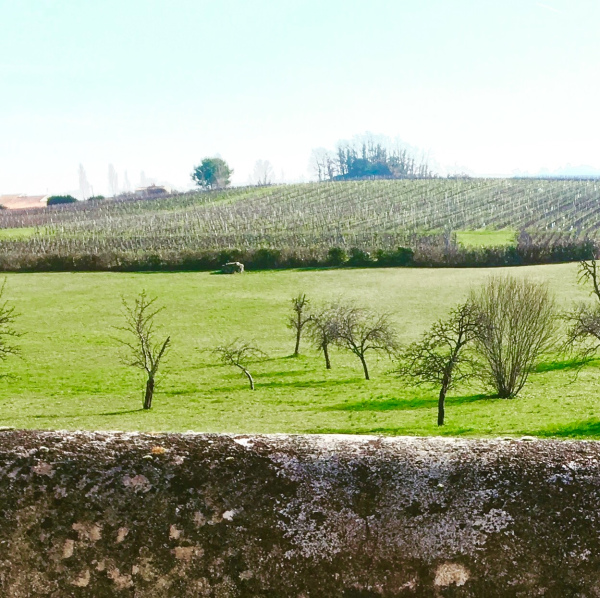
These scientists worked with specific tribal members to have them drink a certain amount of water each day, into which they had placed harmless trace amounts of the rare isotopes of deuterium and oxygen 18. They then collected urine samples daily from these same individuals (I knew there was some reason for avoiding science as a career). These samples were then transported to the Baylor College of Medicine in the U.S. and analyzed. This procedure has been used for some years and is called the ‘doubly labelled water method.’ It measures carbon dioxide production in a human body, and from that determines the amount of energy individuals expend on a given day.
The results were not as expected.

The Hadza tribespeople, who cover miles on foot and exercise regularly, burn about the same number of calories each day as regular 8 to 5 individuals in the U.S. or Europe. For men that’s roughly 2,600 calories a day, and for women it’s about 1,900 calories.
Other similar studies have shown a similar pattern. Traditional farmers in Guatemala, Gambia and Bolivia were shown to expend about the same amount of energy daily as city dwellers. A 2008 study by a Loyola University of Chicago researcher found that rural Nigerian women and African-American women in Chicago expended about the same amount of energy each day, despite the fact that they were involved in different activities, at different levels of intensity.
A subsequent review of 98 studies from throughout the world showed that those living with comfortable modern conveniences burn about the same quantity of calories every day compared to less affluent persons working more physically demanding jobs. Sedentary people, another studied showed, burned only 200 calories less per day than moderately active individuals.
Australian researchers found similar results between sheep and kangaroos kept in pens and those allowed to run freely. Chinese scientists found the same was true for pandas, whether they lived wild or in a zoo.
The reasons are still unknown. Perhaps, the author speculates, the mind and body make subtle changes to behaviors in other daily physical tasks to save energy. Perhaps, on physically demanding days, less energy is spent on maintaining organs and regulating internal cellular activities.
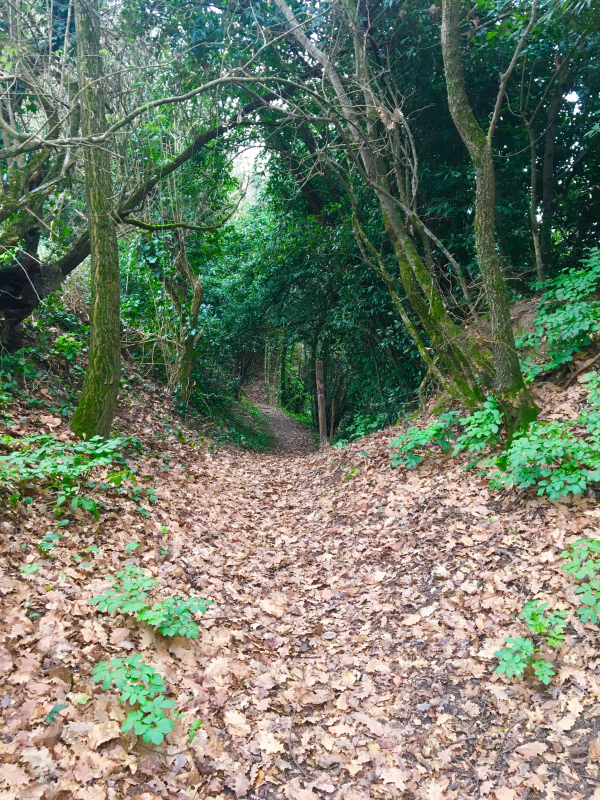
I suspect a reason may be that human and mammalian bodies try to maintain constant levels of energy consumption. Imagine you have a factory, and on some days the production is low and on other days it’s high. The facility will, generally, still consume the same levels of background energy. Although the conveyor belt carries fewer boxes of television sets or breakfast cereals or whatever is produced, it still needs to run at the same speed. The same number of employees are also there, so the quantity of oil for heating and the amount of electricity stays the same for lighting. Also, staff levels are not reduced just because the factory is going slow for a few days—so cafeteria stoves burn the same amount of fuel to provide the same number of meals per day. It may be less costly, in terms of energy and stress, to maintain a constant burn on energy, even when that burn is more than is needed.
Just a guess.
[wpvideo 6dT68LPb]
[Video: Goodbye to this for several weeks]
Regardless the reason, whether or not you exercise apparently has limited impact on the total calories you burn.
Pontzer writes: ‘All of this evidence points toward obesity being a disease of gluttony rather than sloth. People gain weight when the calories they eat exceed the calories they expend.’
He does not discount the value and benefit of exercise for health, however, and writes, ‘You still have to exercise…Exercise has tons of well-documented benefits, from increased heart and immune system health to improved brain function and healthier aging…but evidence indicates that it is best to think of diet and exercise as different tools with different strengths. Exercise to stay healthy and vital; focus on diet to look after your weight.’
Yet from experience and a common-sense perspective, many of us will likely agree that keeping a specific, lean diet and exercising are mutually beneficial.

If you are changing diet, or going on a detox, exercise will help flush away waste cells. If you are exercising, changing the protein/fat/carbohydrate profile of your diet will help build muscle tissue and provide appropriate energy levels for your workout.
Together, the two may also have synergistic effects—where the result exceeds the sum of individual inputs. This seems to be the case with regard to the mindset needed to execute both at the same time.
Here’s what I mean.

Avoiding alcohol and types of food you are used to, as well as exercising, requires mental focus and discipline.
In fact, if you are truly challenging yourself, then the discipline required for exercising (for example, rising at 6.15 a.m. to run miles in freezing darkness along twisted, hilly country roads) can mentally eclipse any hunger (or wine) pangs you may have during that same day. This means that by undertaking exercise and diet at the same time, you may be less likely to notice the diet or detox. I’ve become focused enough on the challenge of forthcoming chilly hill jogs that that I’ve forgotten the lure of sugary hot spiced wine, or even gooey chocolate almond croissants.
[wpvideo ur7hCZZx]
[Video: more of what I said goodbye to for a month]
Here’s another, different, example of the same phenomenon.
In college I was once emotionally upset about a relationship with a woman. Then I checked my calendar and was shocked to find out that the next thermodynamics course exam, which I had thought was NEXT Wednesday, was taking place THIS Wednesday—two days away! Galvanized with a goal and intent on passing, I immediately cracked the books and…completely forgot about all of that emotional angst. There was no space in the brain, effectively, to contemplate both subjects (which, considering the pettiness of what I was upset about, turned out to be a good thing). It’s the same with combining exercise and diet.
In other words (and this has nothing to do with any research mentioned above) when we commit to one challenging goal that unambiguously absorbs and focuses our resolve and direction, we can sometimes simultaneously achieve lesser goals along the way, often with greater ease compared to how we would view these tasks if we lacked a larger, overriding, objective.
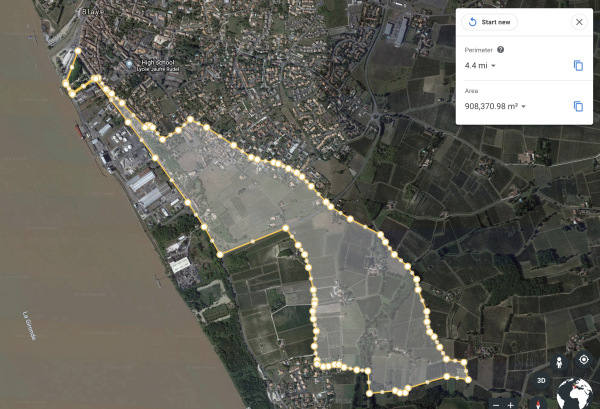
After a total of four weeks, I’ll certainly enjoy vino again (which is timely, considering an upcoming trip to a now sunny segment of wine country). But the goal this month—to feel a lighter—has reaffirmed the benefits of combining diet with motion…even if that means just taking a walk and skipping ice cream and apple pie after dinner.
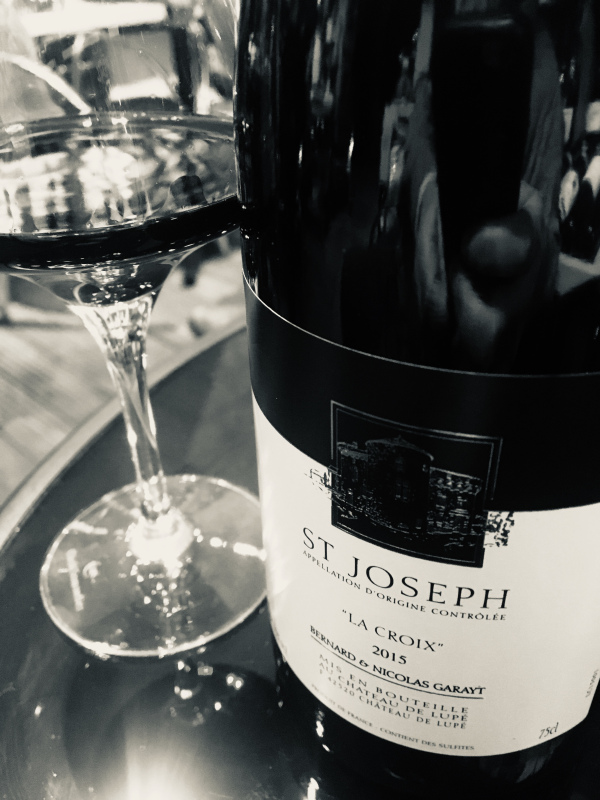
And running on country roads in the dark? The freezing cold and quiet countryside blackness can help wake the mind, while also keeping it calm and focused. But if you do this, be very, very careful. I wear a headlamp and flashing electric armband, and strongly advise that anyone else do at least the same. Daylight running is likely safer. Certainly it’s somewhat warmer.
My latest Forbes pieces are here, and include management advice from top hotel owners, the expanding Swedish wine scene, and how converting plastic to fuel can help to clean up our oceans.
Thanks again for tuning in …
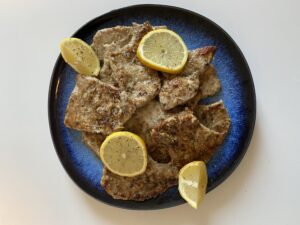
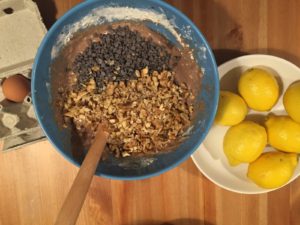
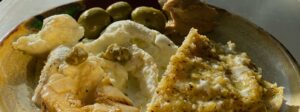
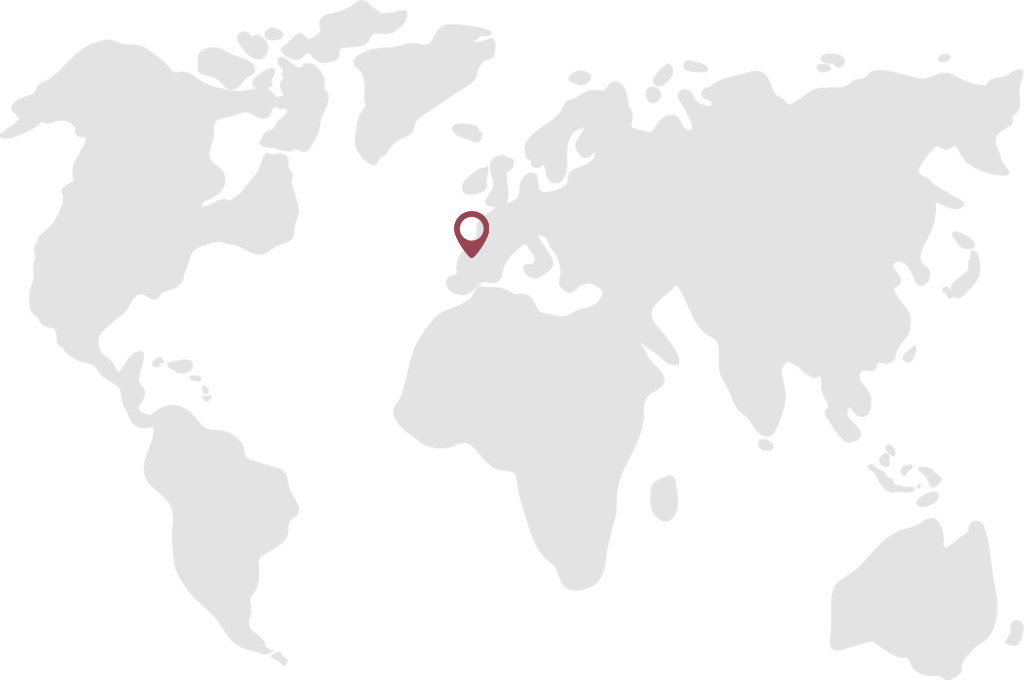
vinoexpressions
22 Jan 2019Jeff from Michigan, USA, wrote:
‘Another great article!!!! As I am trying to also lose weight. Seems like I have been trying to lose weight for a year. Just 10 lbs, but they are a bitch. I equate my working out to muscle gain, and that is why I cannot lose weight. Good for you in your weight loss and running. That running pic with your path lighted is amazing.
Funny reading your article while eating my oatmeal. I said for awhile I should start eating oatmeal to curb my calories. Day 1 of eating oatmeal.
We finally got snow here. Going cross country skiing this a.m. Then tomorrow – it is going to rain.
vinoexpressions
22 Jan 2019David, from Canada and Sicily and now Blaye, wrote:
Hey Tom great post, very interesting!
I’ve been off the sauce for five days now. I do miss it, but my general health and energy level – especially mental energy – are all up, critical as I’m fighting some people over a mistake they admit to. I kept saying- don’t panic – you’ll clear it up on Monday. I did not panic. Mental acuity helped.
vinoexpressions
22 Jan 2019Scott, from Eagle/Vail, Colorado, USA, wrote:
Love it Tommy Boy!
I’m still running trails and loving it! Our trails close from Dec. 15 – April 15th for elk migration but I have been skate skiing instead (which is super fun and a great work out).
Been spending 10 days a month in the winter months down at our place in Mexico so I have about 20 days on the surfboard so far this winter, which is another great work out!
Barb
22 Jan 201911 pounds and tripled running mileage?! Wow! Sorry I’m not there to run in the cold with you like we used to do by Railway Cottages. I’ve only had a couple glasses of wine since Benji was born and feel so much better without it.
vinoexpressions
23 Jan 2019That was a great run we did in the northern English countryside … Ten years ago! Didn’t it rain toward the end? Glad you, Andrew and Benji are well!
vinoexpressions
18 Dec 2019Well a year later it is time to get running and restricting the vino again! Hope you and family are well….